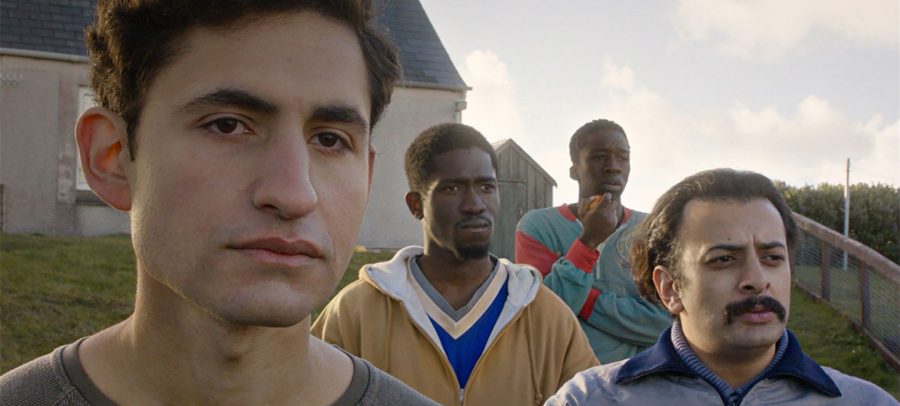Ben Sharrock’s film “Limbo” is a beautiful and vulnerable depiction of the reality of global refugees and their experiences when seeking asylum.
“Limbo,” the 2020 Cannes Film Festival’s official “Newcomer” selection, reimagines immigrant filmography with its amalgam of a masterfully orchestrated score, holistic depiction of refugees, and dedication to preserving authenticity in an often misrepresented narrative. This dark comedy follows the lives of global refugees in Scotland, focusing on a Syrian refugee named Omar. Omar’s life acts as the vessel through which audiences are allowed a realistic window into the trials that refugees face: Omar learns English, tolerates microaggressions from the Scotland locals, and endures obstacles that prolong his asylum, all while struggling to maintain his Syrian roots.
An immediate aspect of the film that strikes audiences is the emotionally compelling musical score in “Limbo”; it ushers the audience into feeling the exact emotions as the characters on-screen. Film score composer Hutch Demouilpied transcends the film’s emotional aspects. The song “Eh Fi Amal” by Fariouz plays near the film’s end and sings: “Even though flowers are filling the fields…to get back together is impossible.” Demouilpied plays with the hearts of the audience, adding this piece to hone in on the melancholia of how the narrative ends. A special aspect of Middle Eastern music — that the outro song perfectly exhibits — is the deep sense of longing conveyed through the tone of the artist; the violins and elongated, emotional versus evoke such a deep sense of sadness in every sentence that is able to reach every heart in the audience, no matter the viewer’s ability to translate the lyrics.
Another integral component of this film is its offer of an authentic and humane glance into the global refugee plight, devoid of the condescension and stereotyping that is otherwise largely present in westernized depictions of immigrants, refugees, and asylum-seekers. This can be seen in the subplot where Omar replicates his favorite dish, a recipe of his mother’s. He calls his mother to write down all the ingredients, goes to the store and continuously searches for sumac (a popular Middle Eastern spice used in many dishes), and even befriends the store clerk in his endeavors. Small moments like these build Omar’s character — and heritage — in the mind of the audience, adding a level of humanity and depth to Syrian refugees that is not normally depicted in western media. The brilliance behind these scenes creates a holistic, fully realized person within the world of this film.
Lastly, while Scottish filmmaker Ben Sharrock’s writing of a refugee-centric film may call into question the authenticity of the narrative due to his non-Syrian heritage, the research conducted to maintain the veracity of the narrative cannot be overlooked. Oftentimes, filmmakers with no personal connection to the stories they tell fall into the trap of manipulating or revising the narrative. Fortunately, Sharrock underwent many levels of research when working on “Limbo,” ranging from majoring in Arabic and Politics in university and living in Syria for a year. Sharrock, as revealed in an article with The Wrap, also consulted with Syrian refugees on their experiences while immigrating. “We were lucky to sit with them and for them to give us their time, tell us about their experiences, and what it felt like to be in new territory and be away from their loved ones.” While ethnic stories told by their owners secure the authenticity of the narrative, “Limbo” presents the narratives of individuals who lack the privilege to do so themselves. In many ways, the film makes monumental strides in humanizing and beginning the film industry’s unlearning of harsh ideologies against Middle Eastern people and immigrants.
Full of unexpected comedy, desperately heart-touching moments of friendship and anguish, and a taste of what Middle Eastern life is like, “Limbo” promises to be the culture shock necessary for any cinephile’s watch list.
Grade: A
Director: Ben Sharrock
Starring: Amir El-Masry, Vikash Bhai, Kwabena Ansah, Ola Orebiyi
Release Date: April 30th, 2021
Rated: R
Image courtesy of Focus Features.








